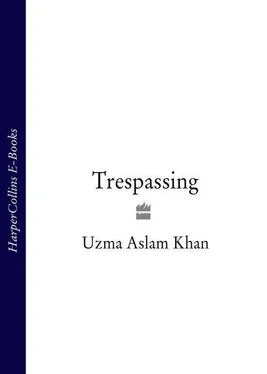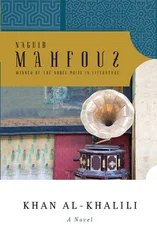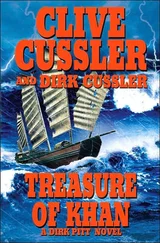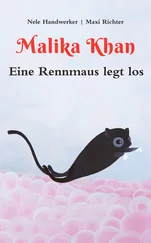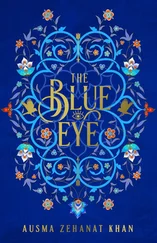‘You coward,’ Fatah whispered, enraged. ‘You’re going to let others sell you. You’ll become their whore.’
‘I’m already a whore,’ Salaamat choked. ‘Yours.’
And then, for the first time since leaving his village, he began to sob. His shoulders jerked in a spasm of its own momentum, independent of the scream in his nose. He’d never lost control so utterly. He, the best shot, the tightest bullet. And the shame of it all was that Fatah saw him unravel. The dam he’d learned to contain fanned out of him; the water swirling in his gut rushed out. He loosened his shalwar and crapped a stream of rewri three feet from Fatah.
His friend did nothing. He didn’t kick or punch him in his filthy, exposed behind. He held his nose and looked away.
Outside the room from which Mr Mansoor would never escape, the dregs of the love Salaamat once had for Fatah surfaced again. He felt a rush of gratitude: he was not despised. Fatah loved him still.
When Salaamat stopped crying and dressed again, Fatah put a slip of paper in his shirt pocket, just as he’d done on their first meeting. ‘If you run the men will hunt you down, especially now that you know the route to the Chief’s. There’s only one way out for you. Go to the Mohana village we found. Have Hameed Bhai take you downriver. The boathouse will hide you well. When you get to Karachi, find him,’ he pointed to the slip of paper.
‘But who is he? And how can he protect me?’ Salaamat sniffled, staring vacantly at the chit of paper.
‘His company supplies our equipment. He always needs drivers and has used dissidents before. Everyone knows that. You’re running from one chief to the other.’
He went into the cell and that was the last Salaamat ever saw of him.
His job with Khurram’s family was simple. He drove a van to the designated place where the clearance agent waited. The fake bill of lading was handed over, the consignment of goods transferred to his van, and the agent paid anywhere between 20,000 to 50,000 rupees, depending on the size of the shipment, and the number and needs of other officials. Sometimes Salaamat met him along the coast of the Balochistan border. At other times, off the National Highway, close enough to the scene of the abduction. He asked no questions, though he did sometimes wonder how the goods came in — at one of the dark bays of Balochistan’s cavernous coast or via the porous Afghan border, like the heroin and firearms? Probably neither. There were more ways to cross borders illegally than legally.
Behind the wheel, Salaamat consoled himself that if he carried a load of torture equipment, it was better than being the one tortured. And he resolved never to belong to anyone again. It made no sense: Fatah’s men got guns from the Pathans and these supplies from a Punjabi, who in turn imported from Amreeka and the Angrez. And Mr Mansoor had been Sindhi. What about Fatah’s talk of protecting his own people?
Never again. He worked only for himself, and occasionally, Sumbul. Nothing else mattered. Something that had come alive again in the gorge had finally shut down for good. God had gone and shrunk everything in His wake. Life was trivial now.
So he’d concluded the day he stumbled down to the Mohana village, after a night spent escaping the Chief’s den.
The stars were still bright when he reached the camp. The men who’d stayed back were asleep. He tiptoed past them and began lumbering up to the top of the world. Just before dawn the next day, he curled under an orange tree outside the thatched hut. The Mohanas nursed him with patience, asking for nothing in return. Some folks were as fine as that. Others weren’t. It made no sense.
The eldest boatman, Hameed Bhai, sat beside him every morning as he drank the reviving broth, echoing Salaamat’s thoughts. He spoke of how his people had built their lives around the river for thousands of years, but now were forced to find other means. It was always the same story. Always the same fight. And it was just so trivial. Every night, he fell asleep to the tune of Hameed Bhai’s lament. The next day, he woke to the women washing clothes, the children twirling dragonflies, and some of the older boys teaching cormorants to dive for fish. He watched as if from a great distance. None of it touched him any more.
On the long voyage down the river, he recalled his grandmother telling him that the last journey — the one that carried the soul to heaven — was in a quiet boat. All he wanted was for this to be that last journey.
He gulped tangerine torture while Hameed Bhai rowed like he was in the prime of his youth, pointing places out to him. ‘The river would feed that lake over there. But the Mohanas who live on it weep now. The lake has grown salty. It is stagnant, filthy. Dead are the freshwater fish: kurero, morakho, thelhi. And what are the people to drink? We were born to water. We drown on land.’
The boatman’s woes drifted in and out of Salaamat’s tangerine stupor, in and out of the river’s song, in and out of the faces of the men who’d been with him on the highway. He imagined how they’d acted in the cell, invented their dialogue, and even pushed the button when they did. The next moment, when the oar dipped into the river, it pulled up a weed-entangled Mr Mansoor.
The phantom Mr Mansoor had hung there all the way down to the bank where Hameed Bhai eventually let him off.
Khurram’s father was loud and stout, like the son. He returned Salaamat’s greeting every morning with a hearty, ‘Waalai-kum-asalaam, Salaamat.’ Peace be upon you too, Peace. He never kicked or jeered him. He paid 4,000 rupees a month — twice what Salaamat made after toiling three years under Handsome. He had two daughters, both married, who came often to the house with their children. His ailing wife kept to herself. He had three cars — a Mercedes, Land Cruiser, and Honda Civic. The first for the evenings, the second for Khurram, and the third for the day. A second driver transported him to work. A third was hired for Khurram when Salaamat delivered shipments to the warehouse.
Salaamat’s quarter was at the back of the three-story house. It was twice the size of his cell at Handsome’s and he’d even been given a tape-recorder and a twelve-inch television. When not busy with a consignment, the day was his. He listened to pop songs, watched television, walked over to the nearest video shop, visited his sister or the workers down the street, or, if the daughters called in, played cricket and pugan pugaai with their children. Sometimes he ran small errands for Khurram. If, for instance, there was no ice cream in the house, he fetched it. He also ran errands for Khurram’s friends, such as taking the Amreekan to the cove.
One thing he liked to do was share a cup of tea with the old construction worker down the street. It was a little like being back in his grandmother’s teahouse. The unfinished house, without a roof and doors, was strangely soothing, and as he sat there, he was a little closer to being in a cottage by the sea. He couldn’t explain why. But since the rains, the workers had gone away so he mostly stayed in his room.
This afternoon he lay on a charpoy and pressed play on the tape-recorder. It was the sound track to a movie he’d seen snippets of at the video shop. A luscious woman in a choli ghagra pranced around a mountaintop while her lover chased her. Her breasts were peaks in their own right, bulging through her blouse like cones re-routing traffic. She jingled and jiggled, pouted and fell flat on her back, writhing over the pasture while her man tumbled onto her. He belted out: ‘You and me, what mischief, what magic!’ She screeched: ‘Open yourself to me …’ He kissed her lips and peaks rolled down peaks.
Читать дальше
Конец ознакомительного отрывка
Купить книгу
